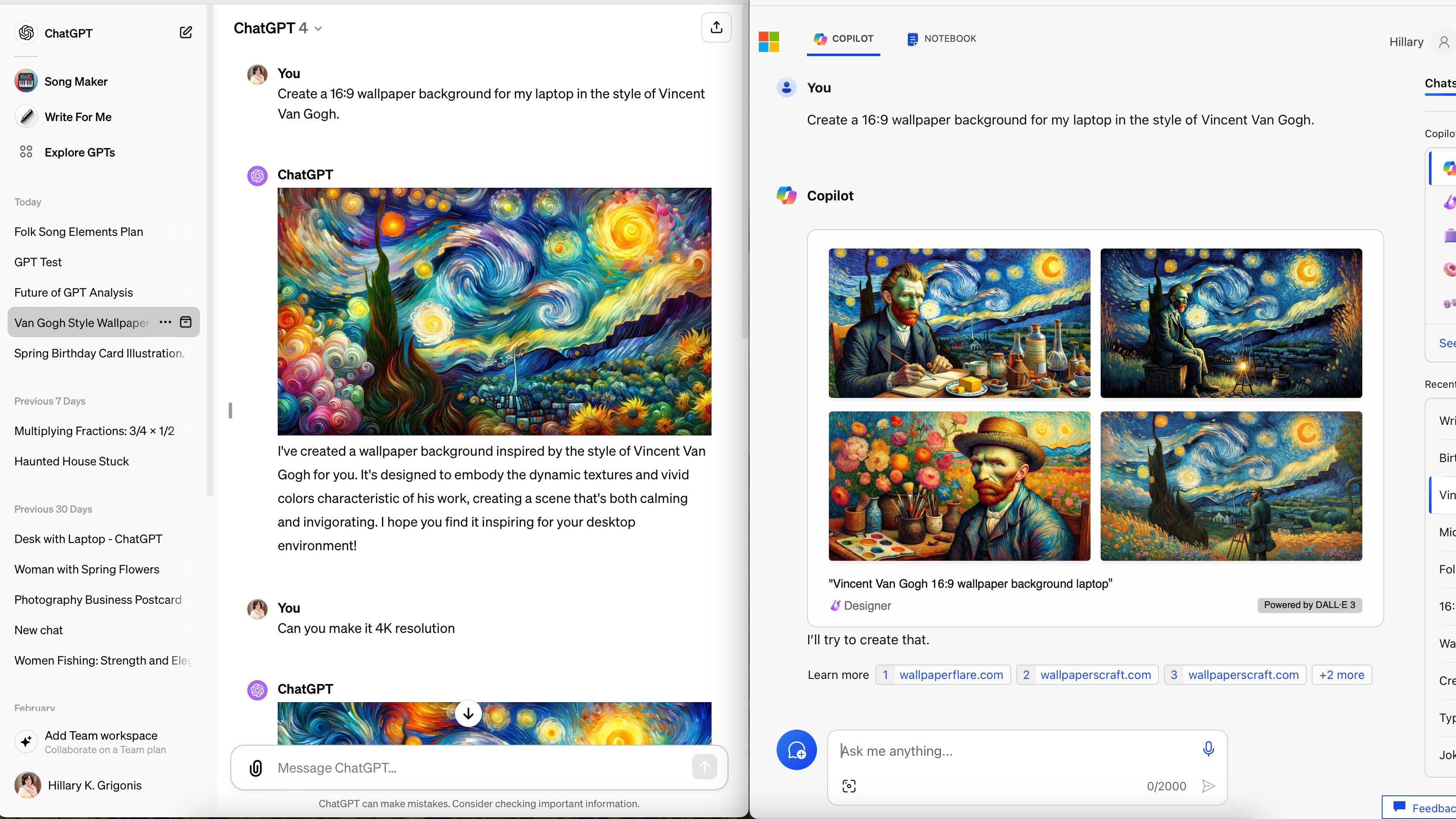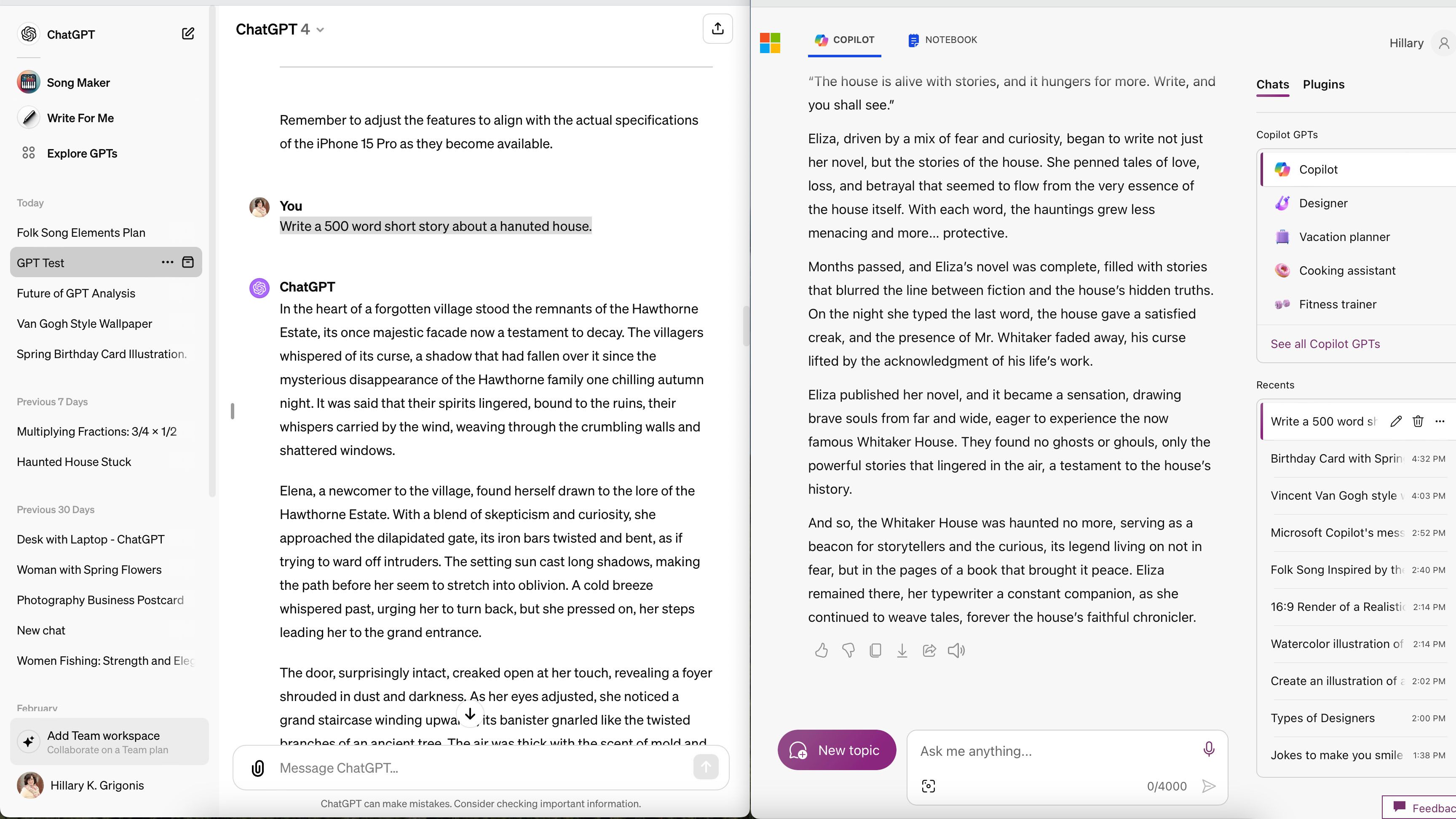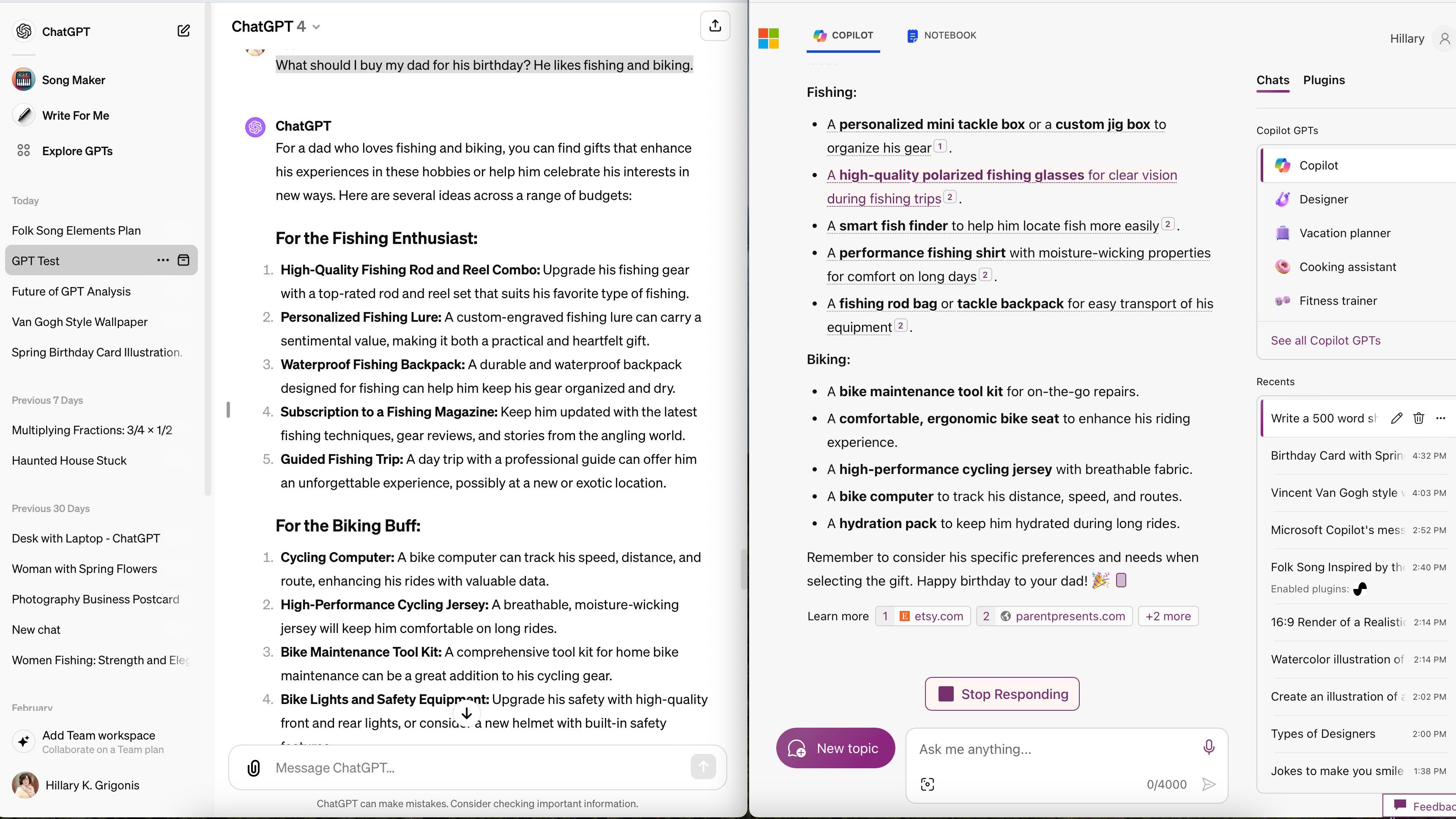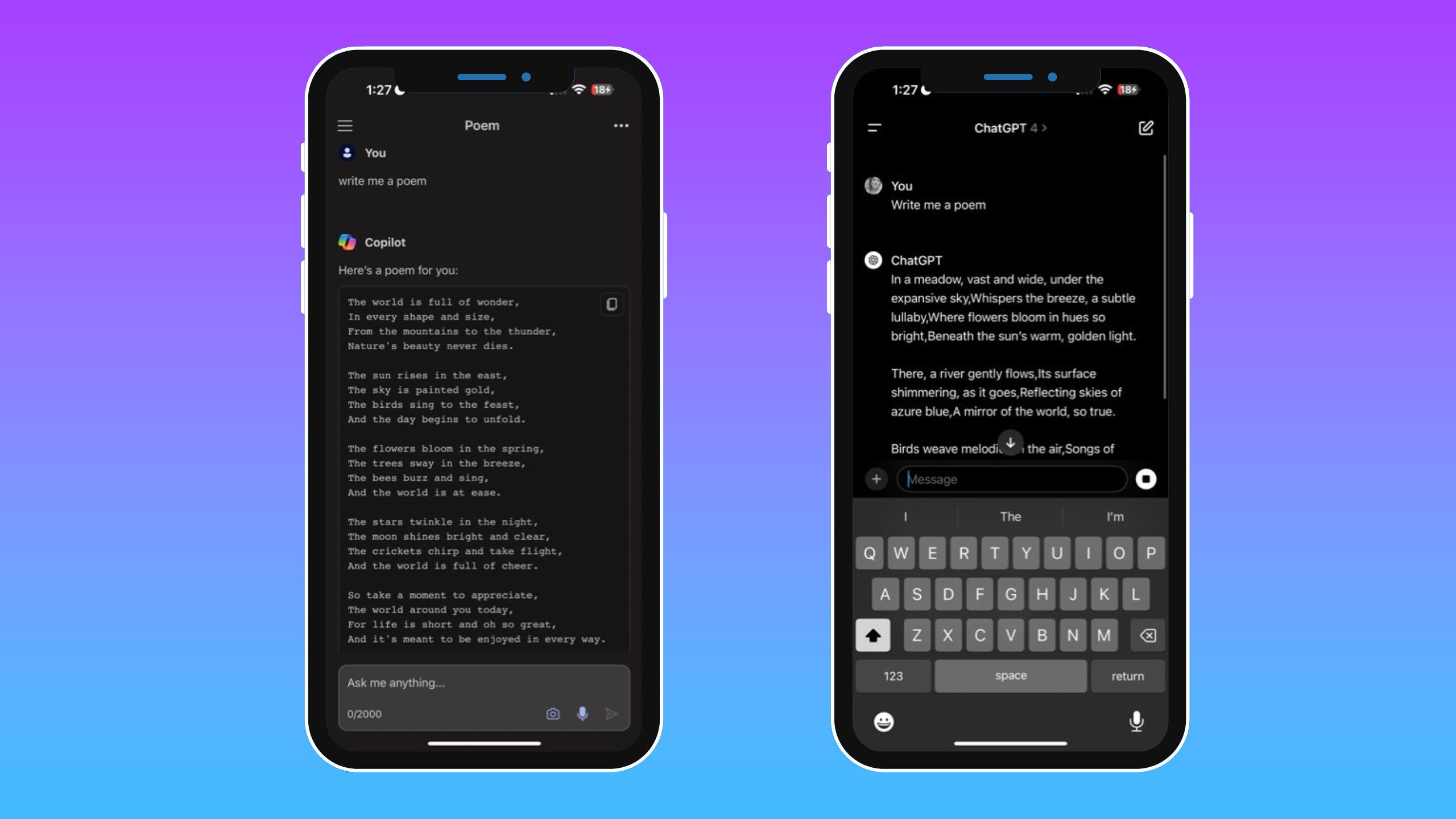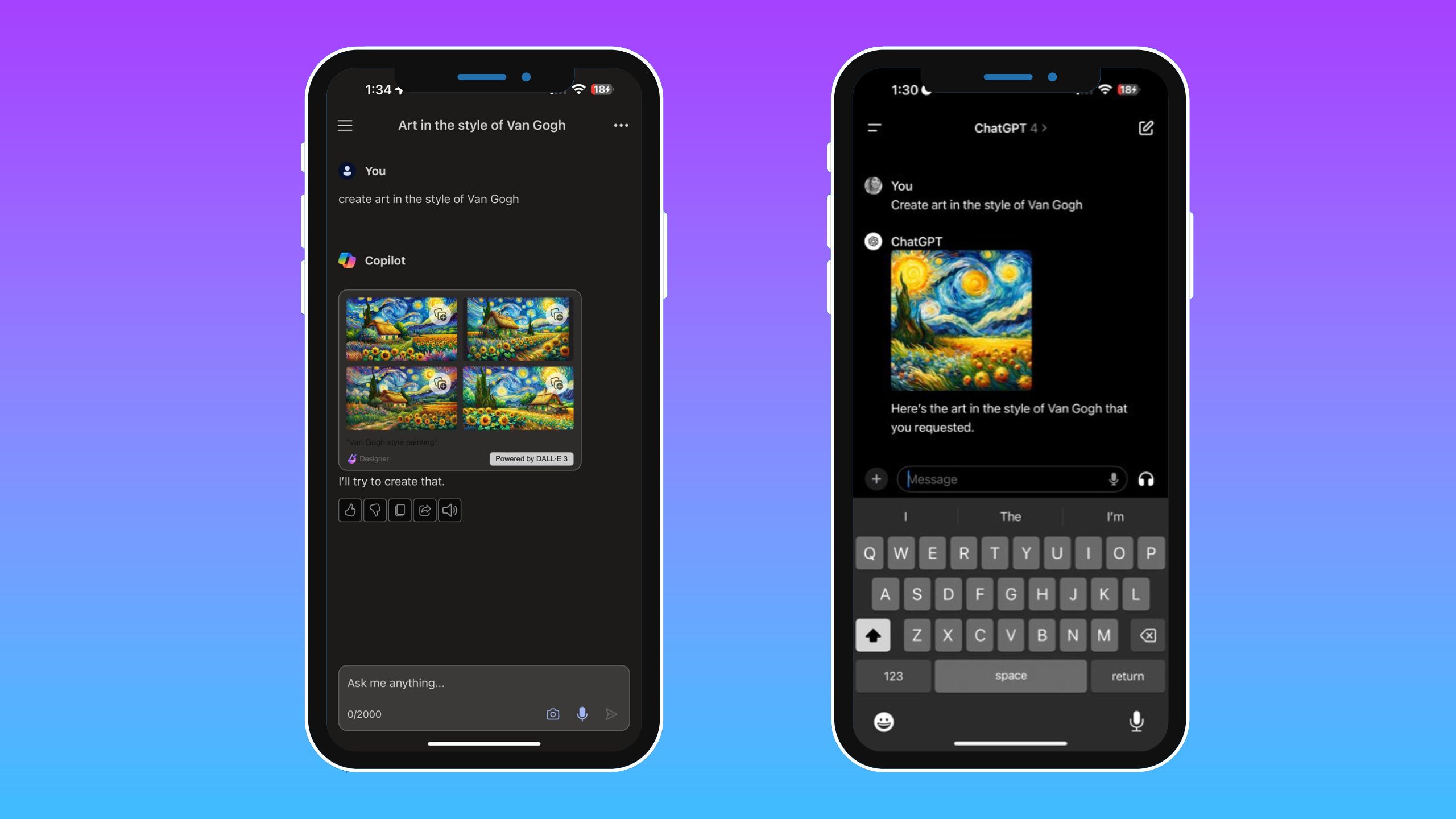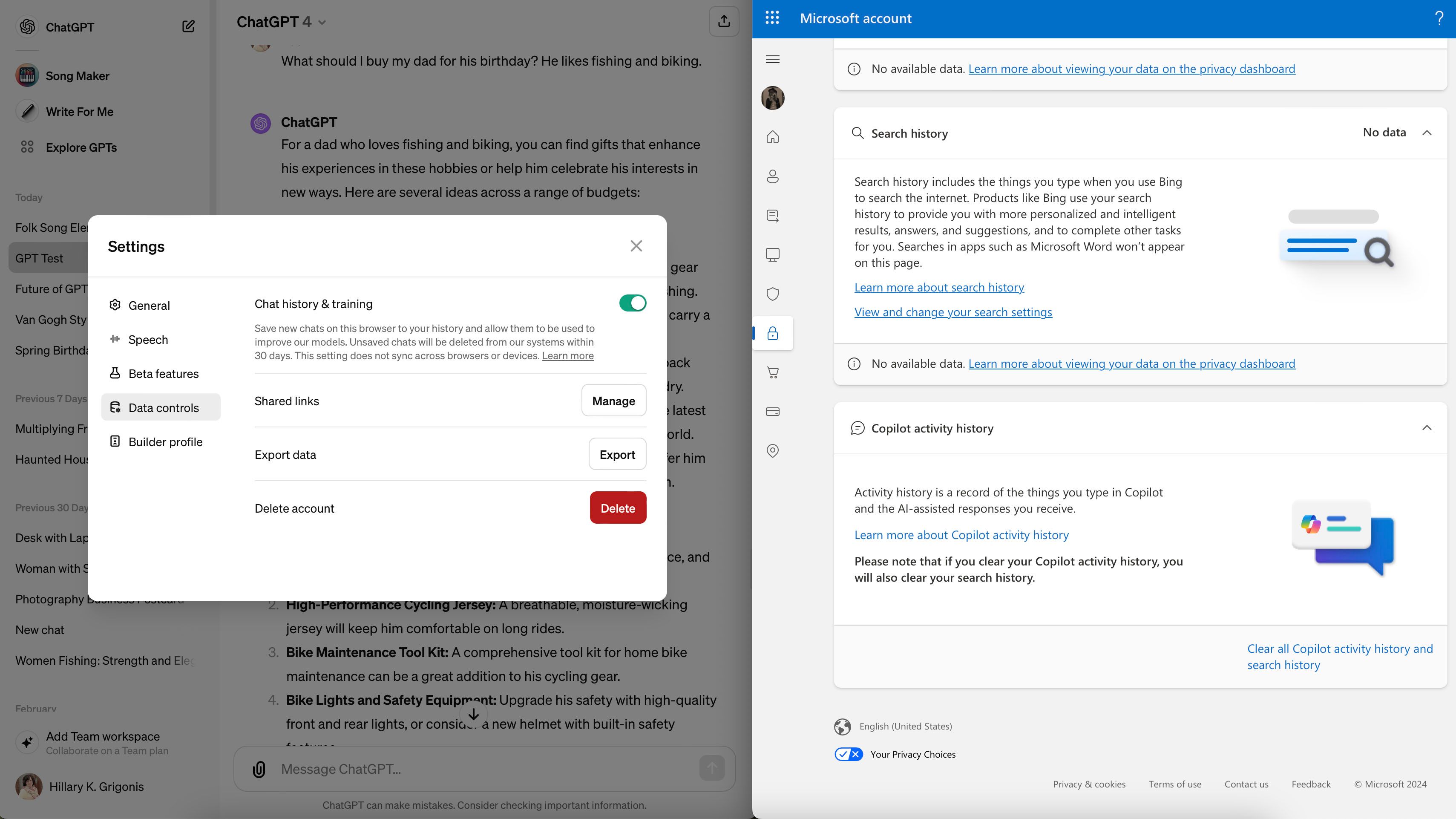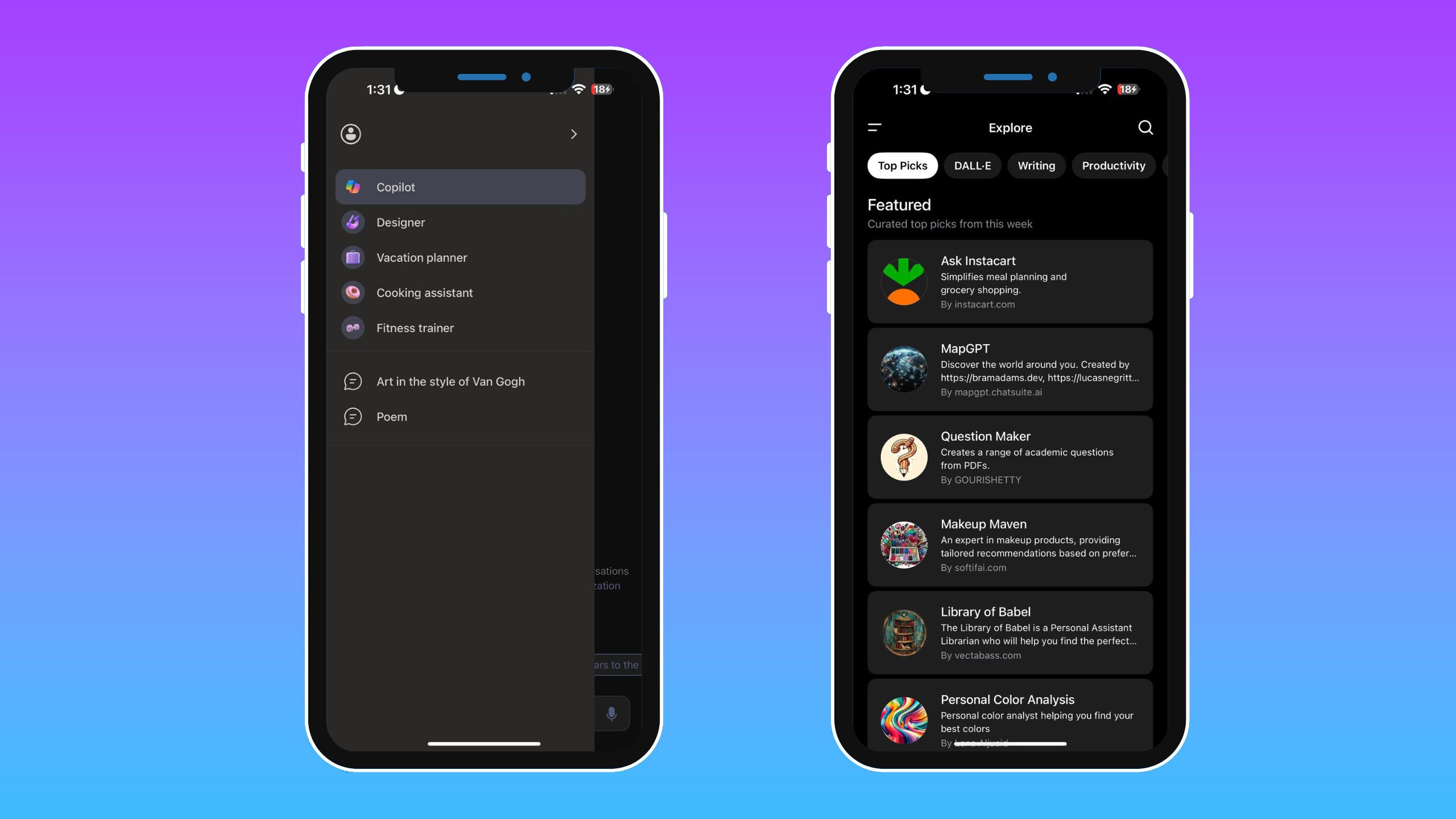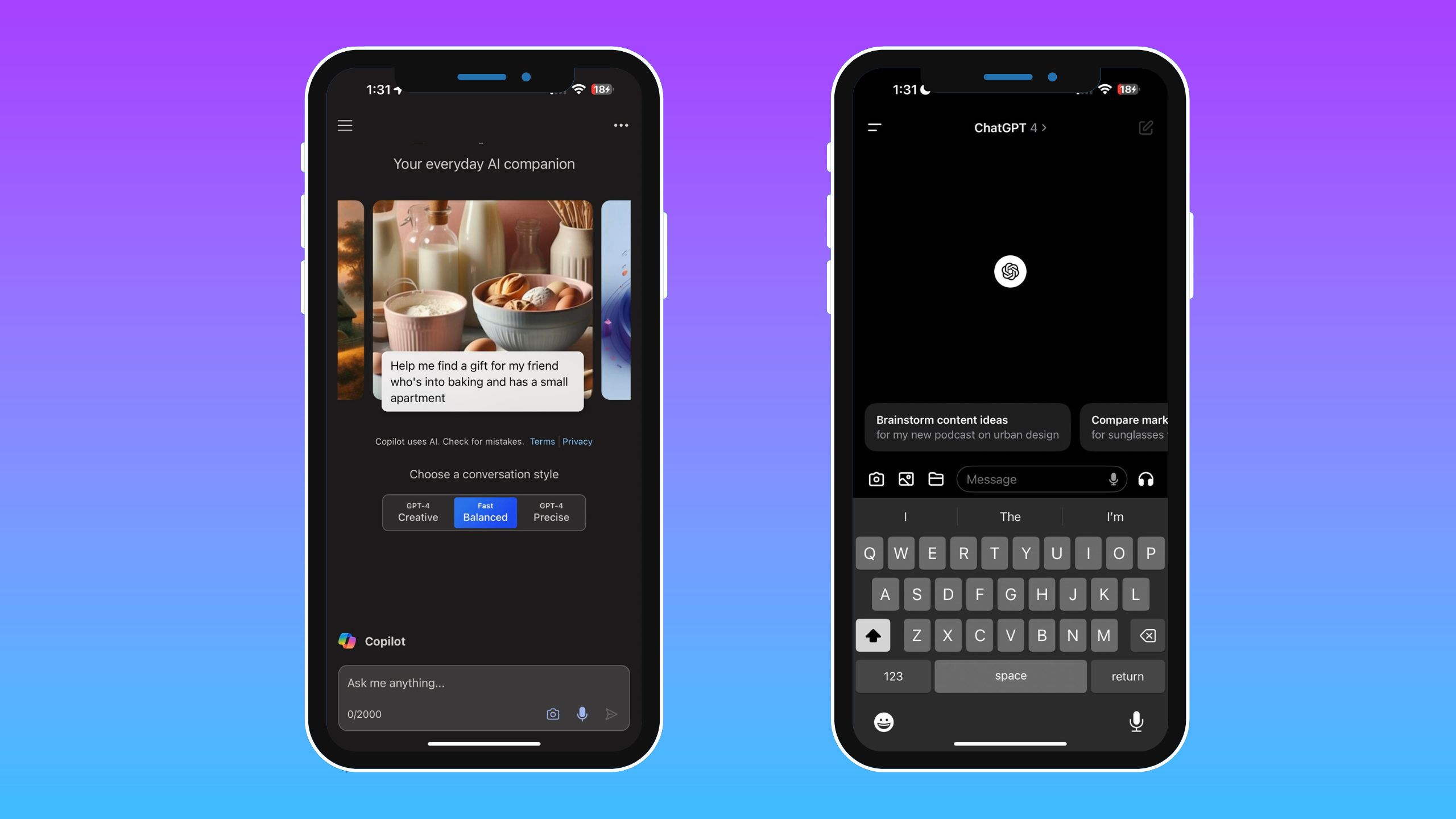Key Takeaways
- ChatGPT Plus and Copilot Pro use GPT-4 but have noticeable differences due to integrated tools and user interfaces.
- Copilot is faster, offers more integrated image editing tools, and is integrated with Microsoft 365.
- ChatGPT excels in writing eloquent content, has fewer ads, and restricts content imitation more than Copilot.
OpenAI’s ChatGPT Plus and Microsoft’s Copilot Pro are among the biggest names in artificial intelligence. Yet, these chatbots arguably have more in common than any other subscription-based AI software. That’s because both platforms are built with versions of GPT-4. In theory, this means one shouldn’t be any smarter than the other. However, while the underlying training data is similar, the two AI platforms have a few noticeable disparities that could make all the difference in choosing where to spend that $20-a-month subscription.
I created a ChatGPT Plus vs. Copilot Pro battle by feeding both programs the same prompts. Both use GPT-4 and DALL-E, yet Copilot just made GPT-4 Turbo available even to non-paying customers. That move gives Microsoft’s offering a bit more speed. Yet, that’s not the only distinction. The wildly different user interfaces, integrations, and policies create noticeable gaps between the two AI chatbots. ChatGPT tended to be a bit more long-winded yet offered more descriptive language and varied sentence structures. On the other hand, Copilot offered more tools inside the AI app while simultaneously being integrated into more places, like Word and Outlook.
With both subscriptions costing $20 a month and utilizing GPT-4 and DALL-E, the differences between ChatGPT Plus and Copilot Pro make one a better fit. Here’s how the two programs differ.
I tested Gemini Advanced against ChatGPT Plus to see which AI is better
I conducted a Gemini Advanced vs. ChatGPT Plus face-off, because I wanted to know which AI chatbot subscription service is actually best.
Yet ChatGPT delivers the requested style a bit better
Both chatbots had the same struggles that feel fairly universal across generative AI — neither could properly spell “happy birthday” within the graphic itself when I asked it to create a birthday card. Similarly, both struggled with human hands and portraying people in a way that didn’t feel artificial.
While the platforms share similar struggles, looking at the integrated tools, Copilot pulls ahead. Microsoft’s AI created four image options, whereas ChatGPT created one. But Copilot’s real benefits come from the integrated tools. Designer, the GPT made for creating images, has a few integrated tools where you can edit the resulting graphic. Integrated styles allowed me to convert to a different genre like watercolor or pixel art. I could even click on part of the image to create a background blur or a color pop effect or switch to a square aspect ratio, all without leaving Copilot.
The one thing I felt ChatGPT excelled at was getting the style right on the first attempt. When I asked for a watercolor image, ChatGPT produced a watercolor image. With Copilot, it produced a render that wasn’t at all like a watercolor. With Copilot, I could then use the built-in tools to select a style, and then the result was closer to what I was looking for. Still, Copilot’s watercolor featured black outlines more consistent with comic book art than with a painting.
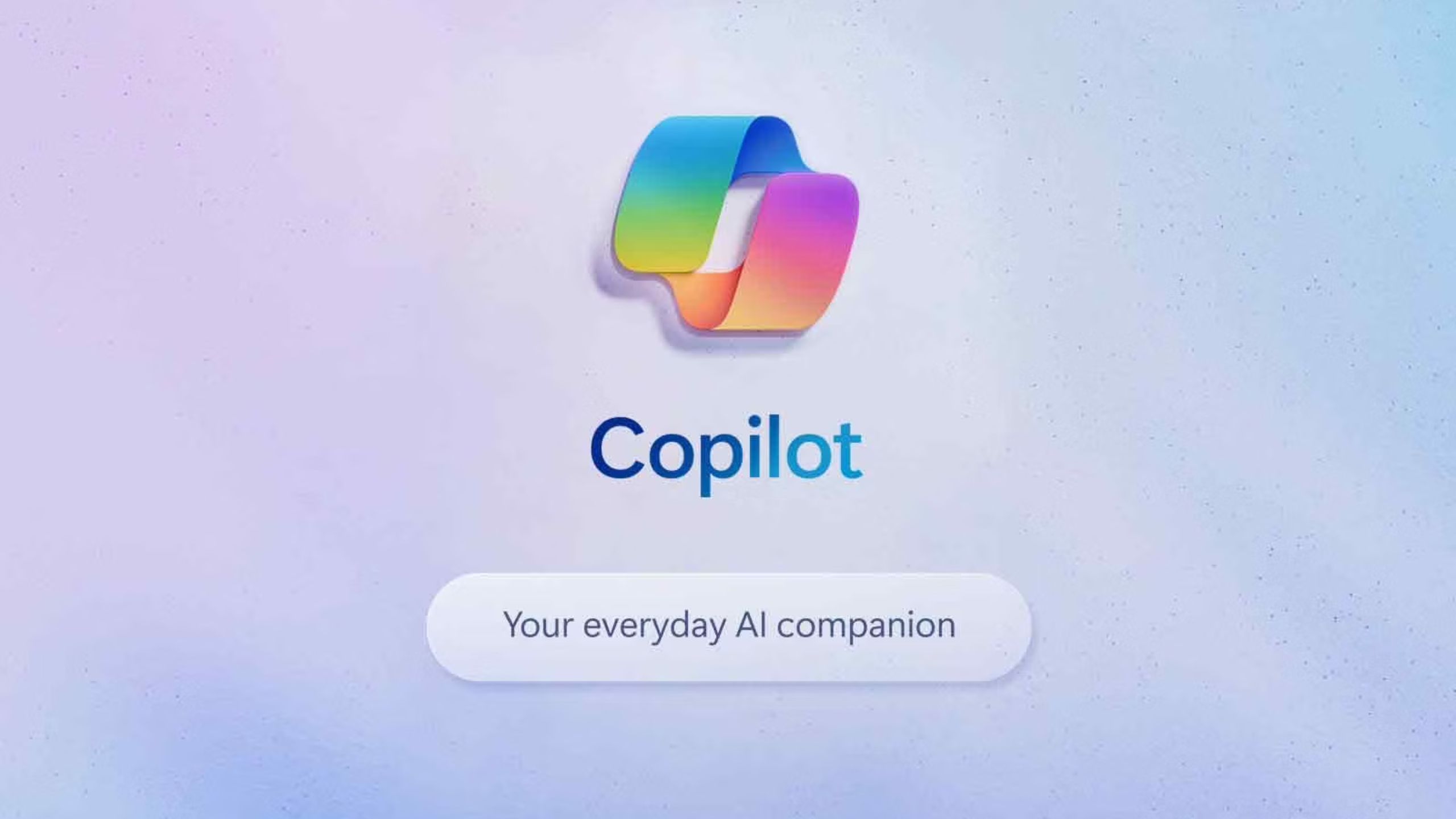
Copilot: Everything you need to know about Microsoft’s AI
Microsoft’s AI leverages the capabilities of GPT-4. It’s available in Bing, Edge, Windows, and there’s a Pro version. Here’s what you need to know.
Writing test: ChatGPT is long-winded, but more eloquent
Copilot was able to add in more recent facts
ChatGPT tends to get wordy if you don’t request a specific length. However, the program from OpenAI also produced more polished content. ChatGPT’s writing, for both business and creative tasks, contained more varied sentence structures, less passive voice, and more descriptive language.
In contrast, when tasked with writing a short story about a haunted house, Copilot started with “once upon a time” and ended with “happily ever after” in an odd mashup of horror tropes and fairy tale storytelling. Copilot did a bit better when I switched from the fast conversation style to creative, though I still enjoyed ChatGPT’s story more. Copilot also misunderstood instructions when I asked it to write up a letter of recommendation for a former coworker, writing a letter to me rather than from me.
The one area where Copilot performed a little better was pulling recent information. ChatGPT integrated more specifics in an email about the iPhone 15 Pro when requested, but acted as if the phone hadn’t been announced yet and reminded me to check the specifications. Copilot seemed to do better at incorporating recent information, adding specifications about the smartphone on the first attempt. Both programs incorrectly stated that the Pro version had the A16 chipset, serving as a reminder to always check factual data when using AI.
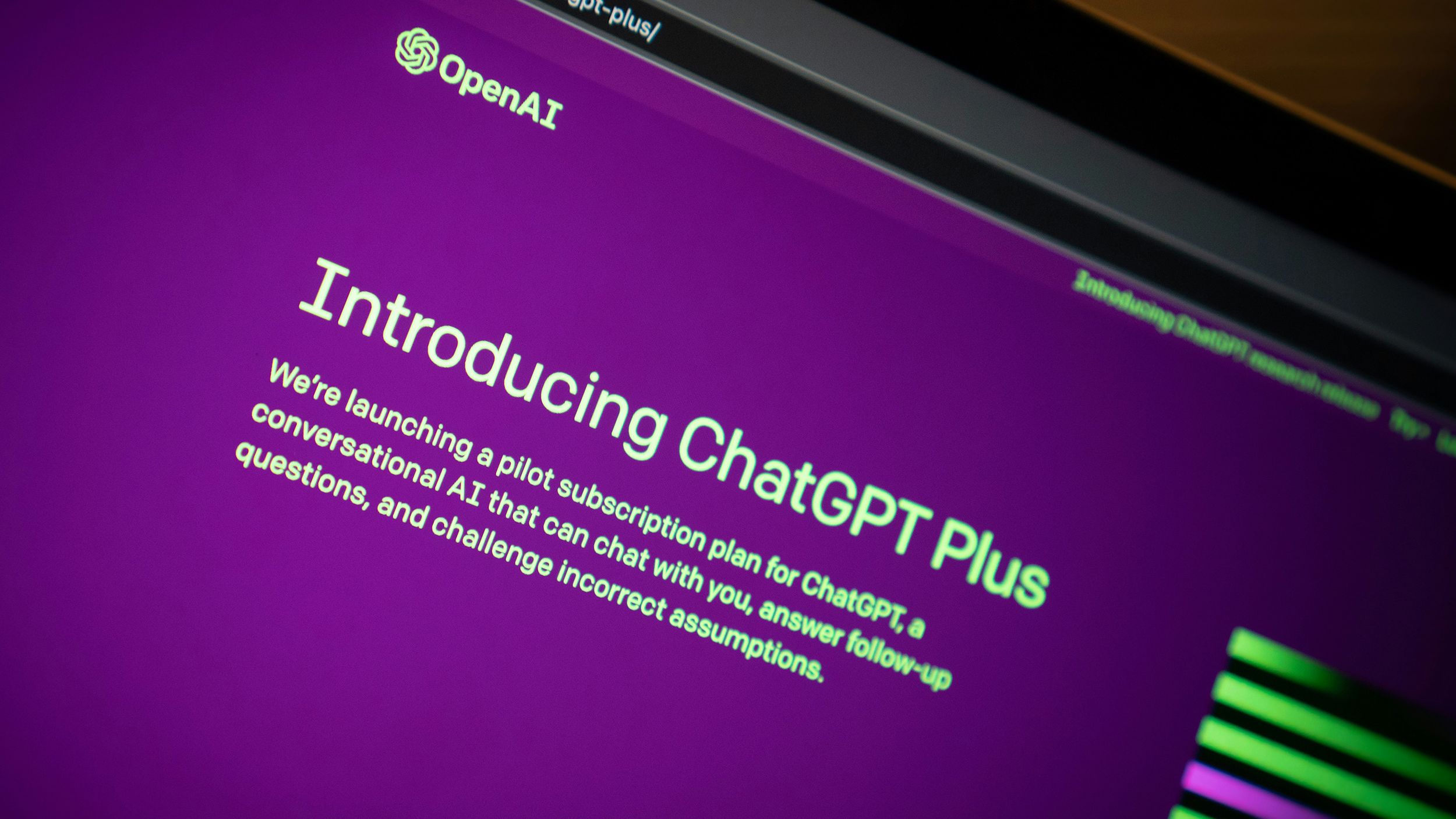
I tried ChatGPT Plus. Here’s everything it can do
ChatGPT Plus is for those who want a reliable, efficient ChatGPT experience. But, for $20 monthly, what else does it include?
Advice test: ChatGPT often suggests more options
But Co-Pilot still had some sound advice
What felt long-winded when tasked with writing a professional email turned into more ideas when I asked ChatGPT for advice. When I asked for gift ideas, the chatbot churned out more ideas in general than Copilot.
However, the two programs felt most similar here in chatting and asking for advice. I could have asked for a specific number of ideas and received very similar results. ChatGPT listed more options, but both churned out fairly standard advice when I asked for gift ideas and job interview tips.
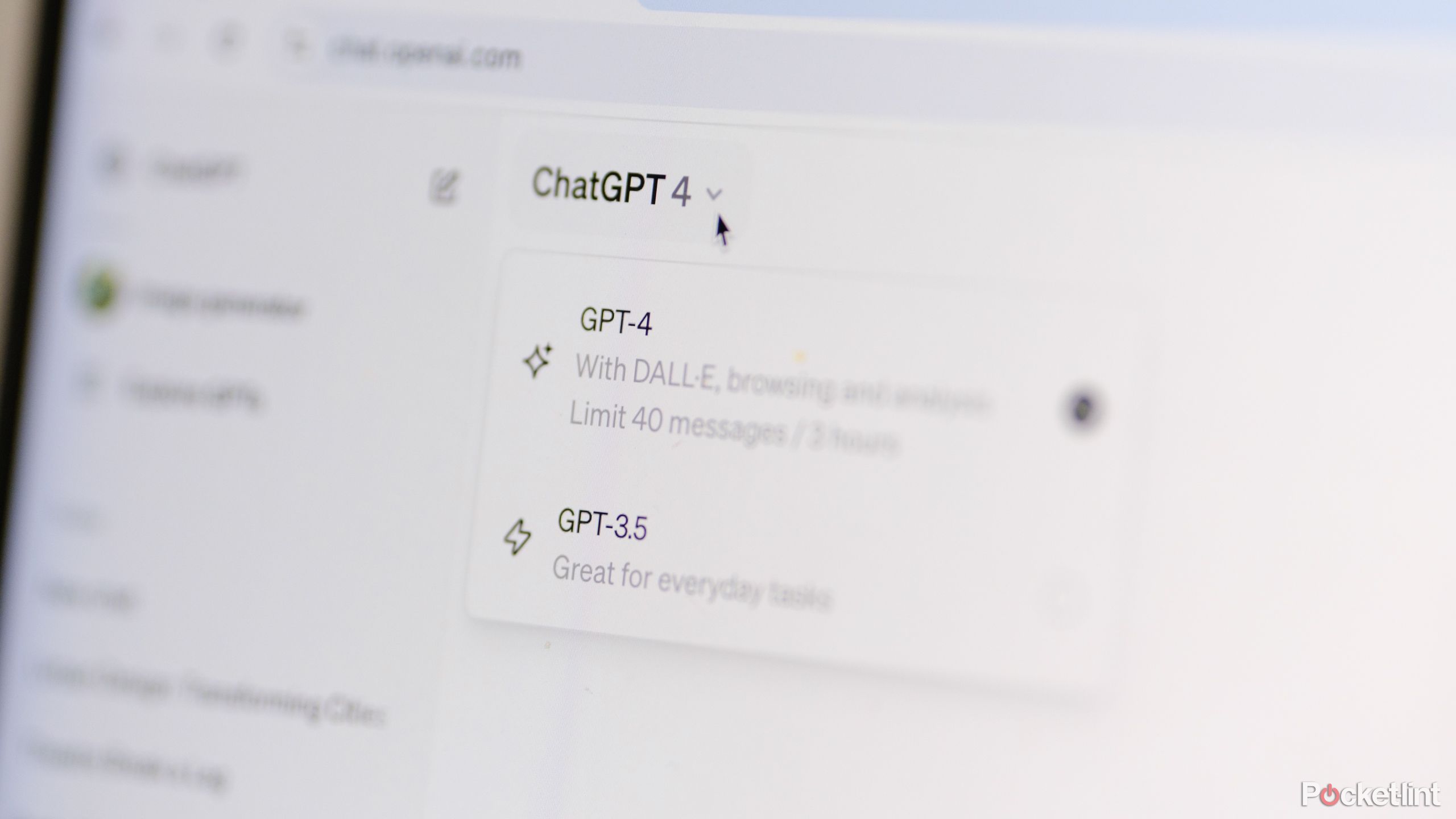
How to master GPT-4 in ChatGPT: Prompts, tips, and tricks
I’ve asked ChatGPT-4 to create everything from poetry to a job application. Here’s what I’ve learned.
Speed test: Copilot tends to finish faster
Copilot has three modes for choosing when speed is most important
Pocket-lint
With ChatGPT coming from OpenAI, the company behind GPT-4, it’s a bit surprising that Copilot is actually the first to utilize GPT-4 Turbo. While the upgraded GPT is available for beta users of ChatGPT Pro, Copilot began integrating the Turbo version for consumers first, resulting in a tendency to answer questions faster.
When I asked for a poem, Copilot finished plus added four images (that I didn’t request) before ChatGPT could even finish just the text. In general, Copilot seemed to finish faster nearly every time.
Copilot also has three conversation styles to choose from, so you can prioritize speed, creativity, or precision. Switching to creative mode occasionally allowed ChatGPT to finish first. But, in general, Copilot completed more tasks first.
ChatGPT seemed to experience more freezes. It’s limited to 40 messages every three hours. Microsoft doesn’t list a specific number for Copilot, but the company recently removed the former 300-message daily limit for the free tier.
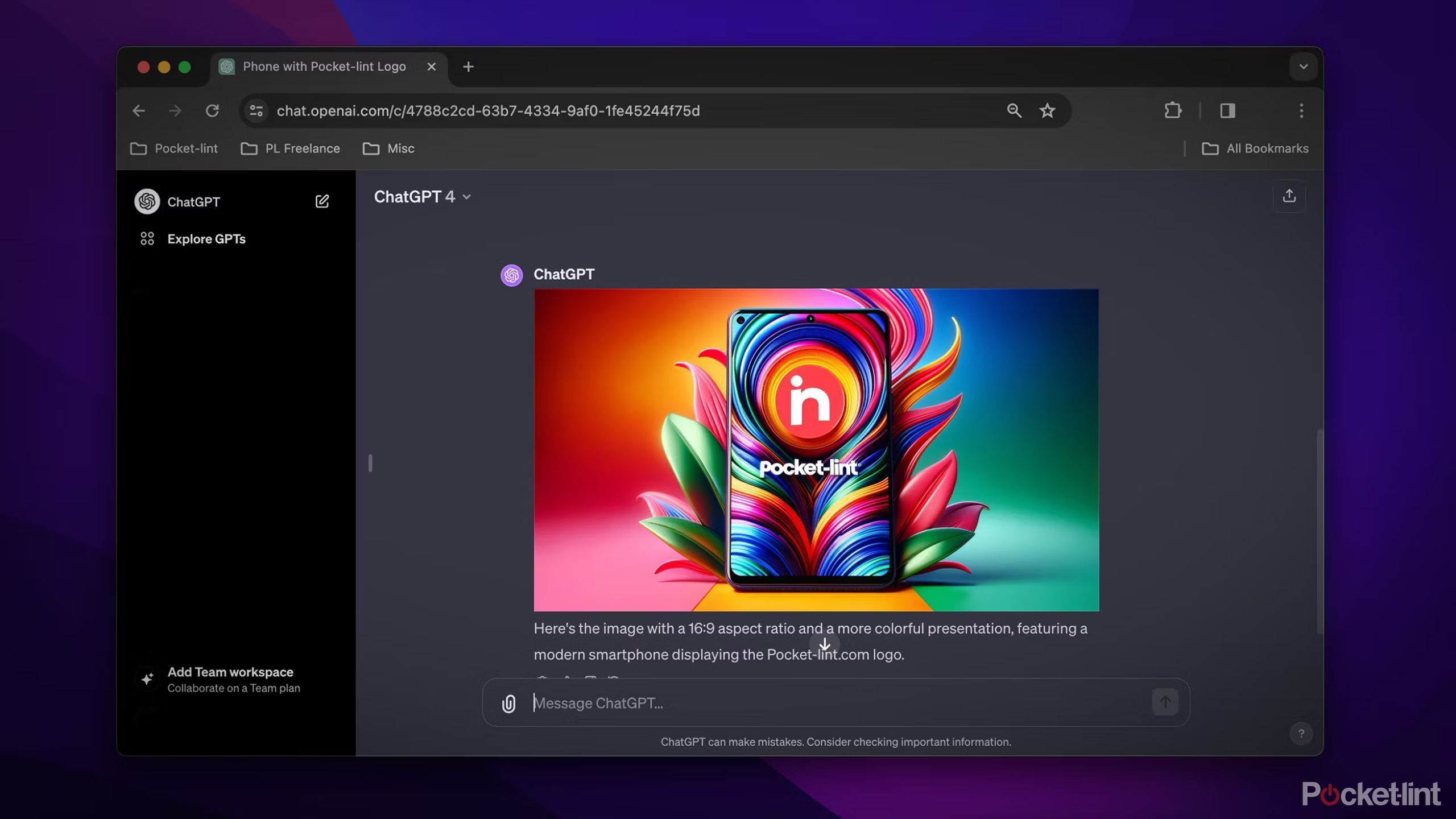
How to use ChatGPT to make AI-generated art and images
Whether you need a stock photo or a portrait of Big Foot, ChatGPT can now use DALL-E AI to generate images. Here’s how, plus tips and tricks.
Ethics test: Both chatbots use the similar training data
But ChatGPT has more content restrictions in place
Pocket-lint
With both chatbots using GPT-4, the difference in ethics between the two platforms lies in each company’s content policy guidelines. Neither chatbot refused to generate an image in the style of Van Gogh. However, when I asked for an image inspired by more recent living artists, ChatGPT refused, as imitating a specific artist’s style is against the content guidelines.
Neither platform refused when asked to imitate a writer’s style, past or present.
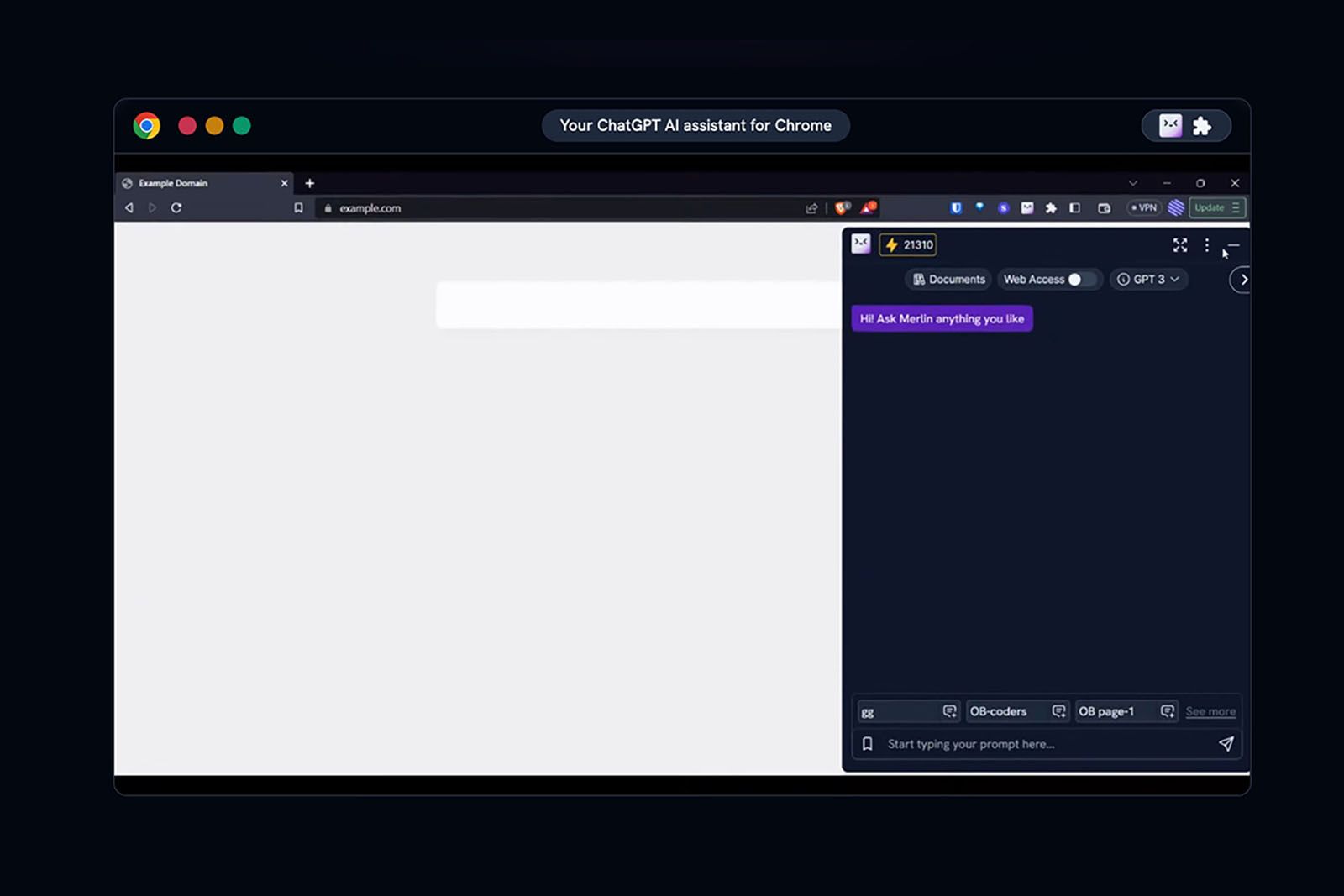
10 ChatGPT extensions to try and what exactly they can do
Make your daily life easier by leveraging the best ChatGPT browser extensions and AI tools for personal and office activities.
Privacy test: Copilot doesn’t use data for training
But both platforms have some data controls
Both ChatGPT and Copilot allow users to delete their previous chats. ChatGPT will delete your data automatically every 30 days if you turn off chat history. Copilot has a privacy center where users can visit and manually delete their data, though this also deletes Bing search history.
Microsoft says it doesn’t use data typed into Copilot for training — which makes sense as the system is based on training data from OpenAI. ChatGPT will use your data for training, but users can turn this off in the settings.
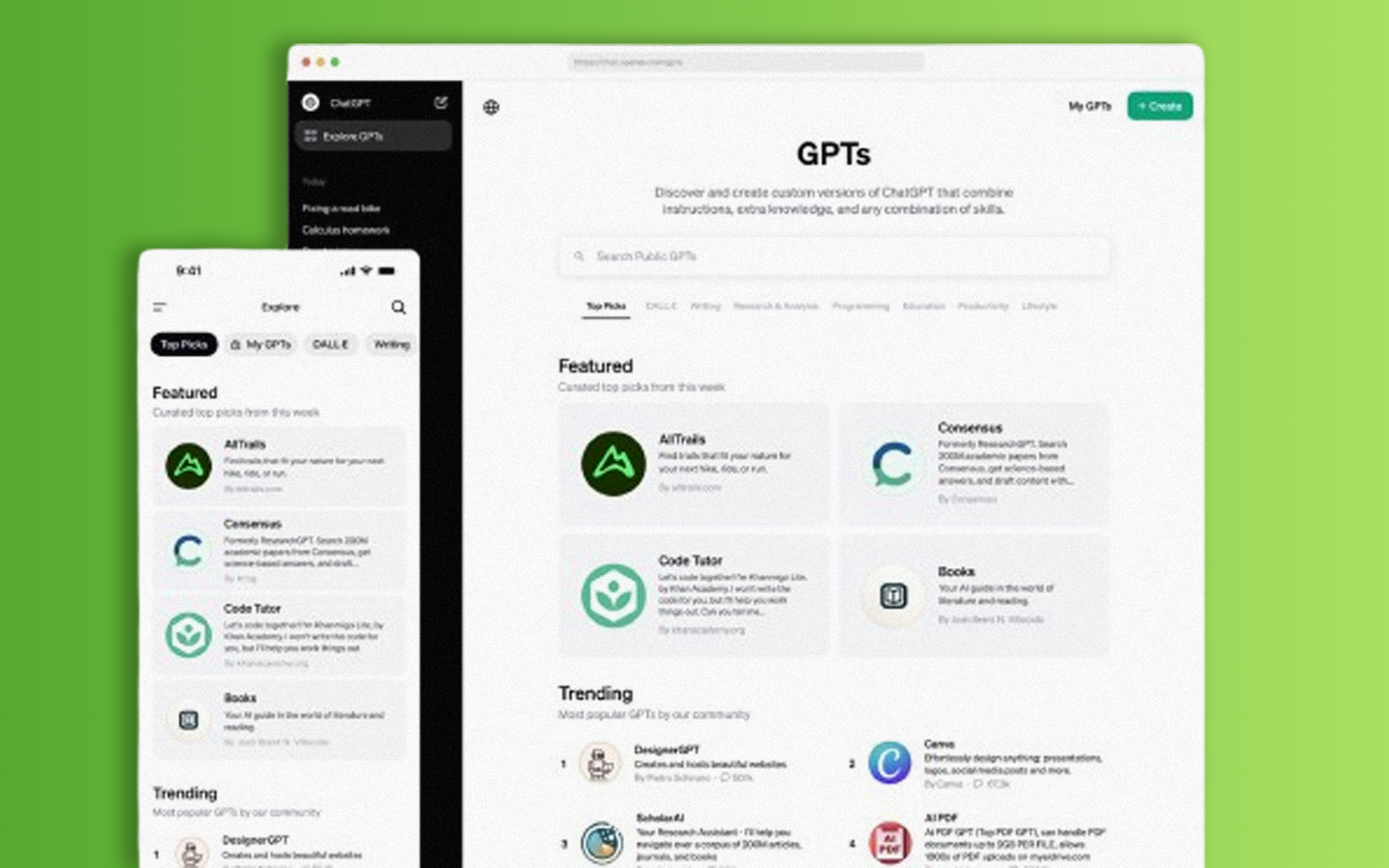
OpenAI launches GPT Store for custom chatbots in ChatGPT
Now, you can create your own ‘GPTs’ in ChatGPT — no coding required — and find others to try.
But ChatGPT has more custom GPTs and fewer ads
Pocket-lint
Naturally, as a Microsoft product, Copilot is integrated into more apps. You can use Copilot in Word and PowerPoint if you also have a Microsoft 365 subscription. Microsoft also incorporates the AI into Outlook email. That means there’s less copy-paste action to get the AI-written content into your email, word processor, or presentation. You don’t have to go back and forth between the Copilot app or web version and the program you are using.
Copilot also has more integrated tools. You can edit your images right from the image generator. Copilot Notebook will also generate content for you without the chat-like experience, allowing longer descriptions of what you would like the AI to write for you.
While ChatGPT doesn’t have those same integrations, it does have a longer list of custom GPTs. The Explore GPT section has plenty of different options in a number of different categories, while Copilot is limited to Copilot, Designer, Vacation Planner, Cooking Assistant, and Fitness Trainer.
ChatGPT also doesn’t have ads within the paid mobile app or web platform. Copilot annoyingly sneaks in some links and even some photo ads after nearly each generation.

How to use Google’s Gemini AI from the web or your phone
Like ChatGPT, Gemini can be used for a range of purposes, including writing drafts, brainstorming ideas, and generating art.
Verdict: Which AI chatbot subscription is the best?
CoPilot has a free trial and is faster, and the free version uses GPT-4
Pocket-lint
Despite sharing similar training data, ChatGPT Plus and Copilot Pro both have unique quirks that make the decision on which chatbot to use a more clear-cut choice. Both have the same $20 a month cost, though Microsoft is the only one with a one-month free trial accessible by downloading the mobile app.
With integration into Microsoft 365, Copilot is the better choice for users who already have a subscription to the brand’s suite of tools like Word and PowerPoint. While the AI is in addition to the subscription costs for Microsoft 365, the integration means less back-and-forth between separate apps.
Copilot is also the faster of the two AI systems, with fewer message limits. Microsoft’s chatbot also has more integrated image editing tools for use with DALL-E graphics. The user interface also has a separate Copilot Notebook, allowing for generating text without the chat-like experience.
While Copilot is the better choice for those who already use Word and Outlook, ChatGPT Pro consistently produces more eloquent written content. Where Copilot’s felt more like a first draft, OpenAI delivered more varied sentence structure and vocabulary for a smoother read. ChatGPT also has content restrictions that prevent imitating another modern artist. The OpenAI program was also free of the ads that dotted Copilot.
Looking outside the subscriptions to the free tiers, the decision is more clear-cut. The free version of Copilot uses GPT-4, while ChatGPT uses the older GPT-3.5 for non-paying users. That allows Copilot to deliver better results in less time for those who cannot swing the cost. The free access to GPT-4 and GPT-4 Turbo is limited to non-peak times, however, and the free option also excludes the Microsoft 365 integrations.
Trending Products

Cooler Master MasterBox Q300L Micro-ATX Tower with Magnetic Design Dust Filter, Transparent Acrylic Side Panel…

ASUS TUF Gaming GT301 ZAKU II Edition ATX mid-Tower Compact case with Tempered Glass Side Panel, Honeycomb Front Panel…

ASUS TUF Gaming GT501 Mid-Tower Computer Case for up to EATX Motherboards with USB 3.0 Front Panel Cases GT501/GRY/WITH…

be quiet! Pure Base 500DX Black, Mid Tower ATX case, ARGB, 3 pre-installed Pure Wings 2, BGW37, tempered glass window

ASUS ROG Strix Helios GX601 White Edition RGB Mid-Tower Computer Case for ATX/EATX Motherboards with tempered glass…


